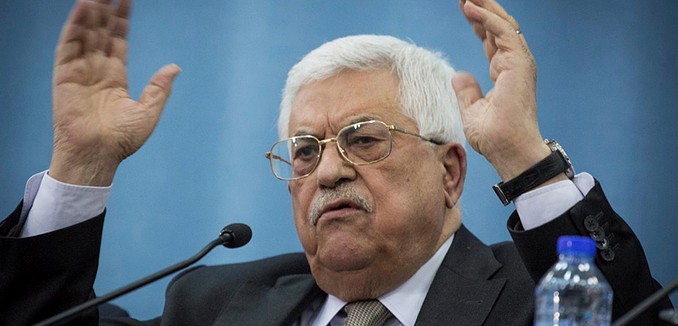Palestinian Authority President Mahmoud Abbas has formed a new constitutional court that will have primacy over lower courts and further entrench his hold on power, Reuters reported on Monday.
The court, which will be run by judges who are affiliated with Abbas’ political party Fatah, “risks deepening Palestinian political divisions,” according to critics. Its rulings would be binding on the executive, legislative, and judicial branches of the Palestinian government, potentially bolstering Abbas and further marginalizing his rivals, most notably Hamas. However, Fatah has defended the court, claiming that it will be independent of the Palestinian president.
“Neither the president nor any of the leaders (of Fatah) has a private agenda regarding this issue,” said Fatah spokesman Osama al-Qwasmi. “The prime task of the constitutional court is to monitor laws. By the law, it is a completely independent body and we have full confidence in it.”
Abbas was elected as president in 2005 to a four year term. No elections were held in 2009, and Abbas continues to rule by decree. The speaker of the Palestinian Legislative Council, which has not been convened since 2007, is a member of Hamas, the Iran-backed terrorist group that rules the Gaza Strip. In the event that Abbas resigns or dies, it is the speaker who would be next in line to be president, though Fatah disputes the constitutionality of this succession.
In addition to packing the court with Fatah members and allies, Abbas also circumvented Hamas by appointing two members from Gaza. Hamas would not allow to the Gaza residents attend the swearing-in ceremony on Sunday, and so Abbas instead swore them in via video conference.
Grant Rumley, a research fellow at the Foundation for Defense of Democracies, called the court’s establishment “a blatant power grab at a time when [Abbas] knows he can get away with it.” Rumley added, “From Abbas’s standpoint, this is his way of both thwarting his rivals in Hamas and securing his Fatah party’s hold on the Palestinian Authority once he is gone.”
According to Hani al-Masri, a West Bank Palestinian political analyst, “It is as if you are confiscating everything and putting all the institutions in your hands.” Issam Abdeen, a law professor at Birzeit University in the West Bank, similarly warned that the court would have few limits on its power. “It can be a lethal weapon if misused,” Abdeen said, adding that the court could block political challenges from Abbas’s rivals, such as exiled former security chief Mohammed Dahlan.
“Rather than reforming his party, preparing for elections, or reactivating the defunct parliament, (Abbas) is creating another judicial body by presidential decree in order to, among other things, approve presidential decrees,” Rumley observed.
The move comes amid flaring tensions between Fatah and Hamas. The Gaza based terrorist group recently denounced the PA, which is ruled by Fatah, for arresting its members in the West Bank.
The reconstruction Gaza in the wake of Hamas’ war against Israel nearly two years ago has been hampered by similar Palestinian infighting.
According to the 2015 ranking of Freedom House, which measures political freedoms and human rights, both the Fatah-led West Bank and the Hamas-ruled Gaza Strip are “not free.”
Revelations from the Panama Papers leak last week shed light on the PA’s shady financial dealings, including Abbas’ domination of the Palestinian Investment Fund, an ostensibly independent body.
Abbas’ failure to establish functioning institutions of government or secure control of Gaza, which would be part of a Palestinian state, undercut claims that Palestinians could create a viable democratic state that would live side by side with Israel, even if a peace agreement was made.
[Photo: Hadas Parush / Flash90 ]




